






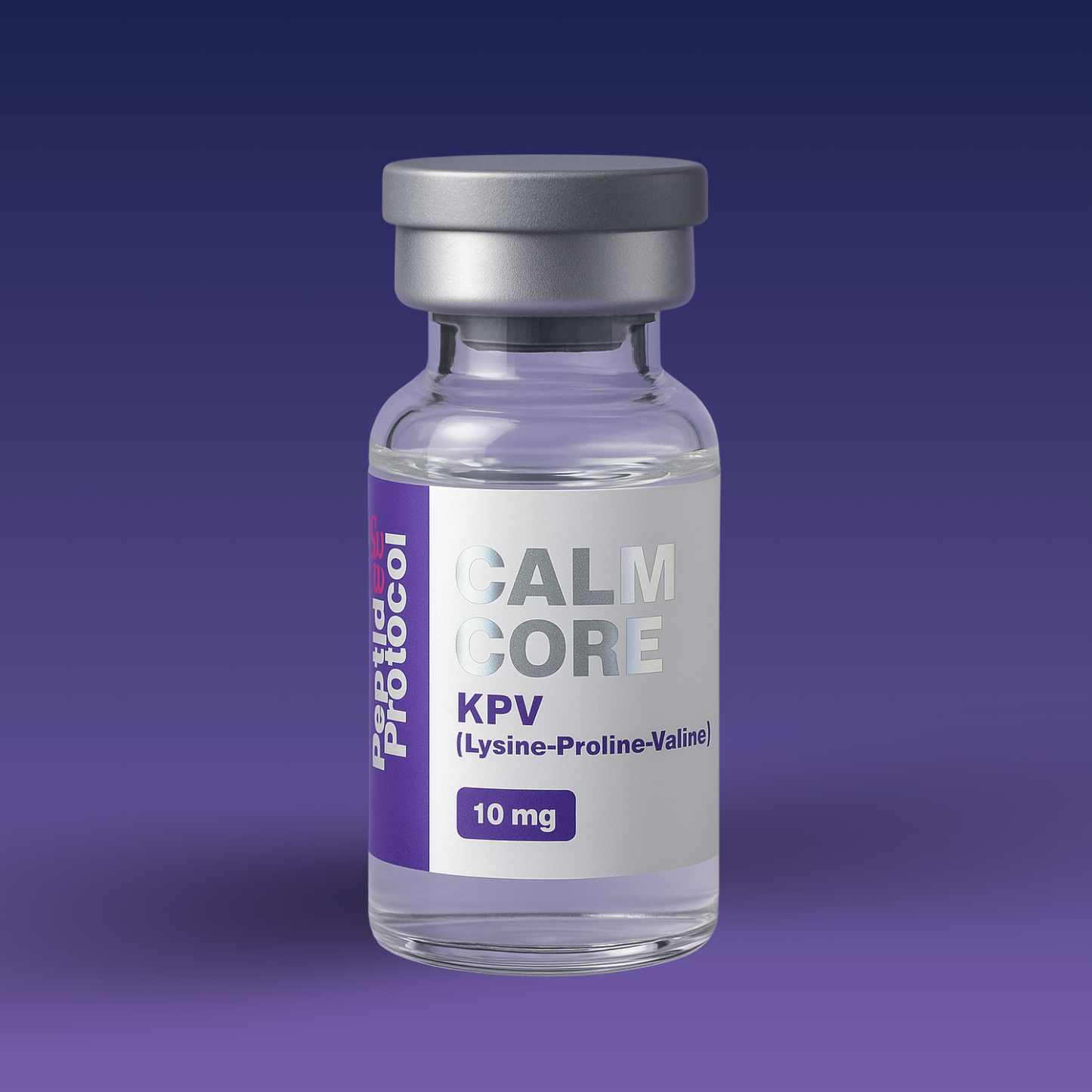
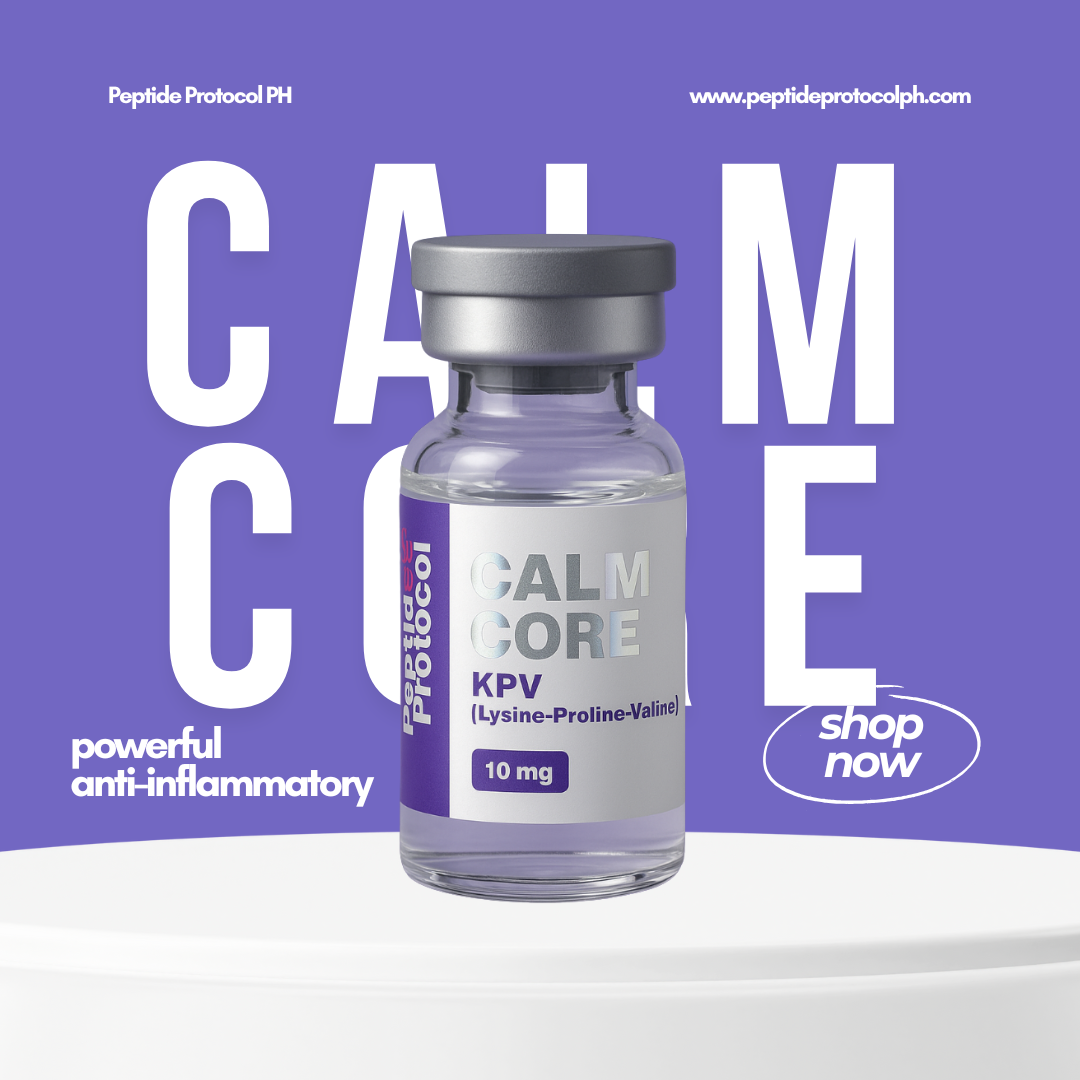
Inflammation, Meet Your Match
Balance from Within
Chronic bloating, flare-ups, or skin irritation are more than just discomfort — they’re signals that your body is fighting silent inflammation. CalmCore is a peptide studied to bring peace at the cellular level, restoring balance to your gut, skin, and immune system. Designed to support resilience, so you feel lighter, clearer, and in control again.
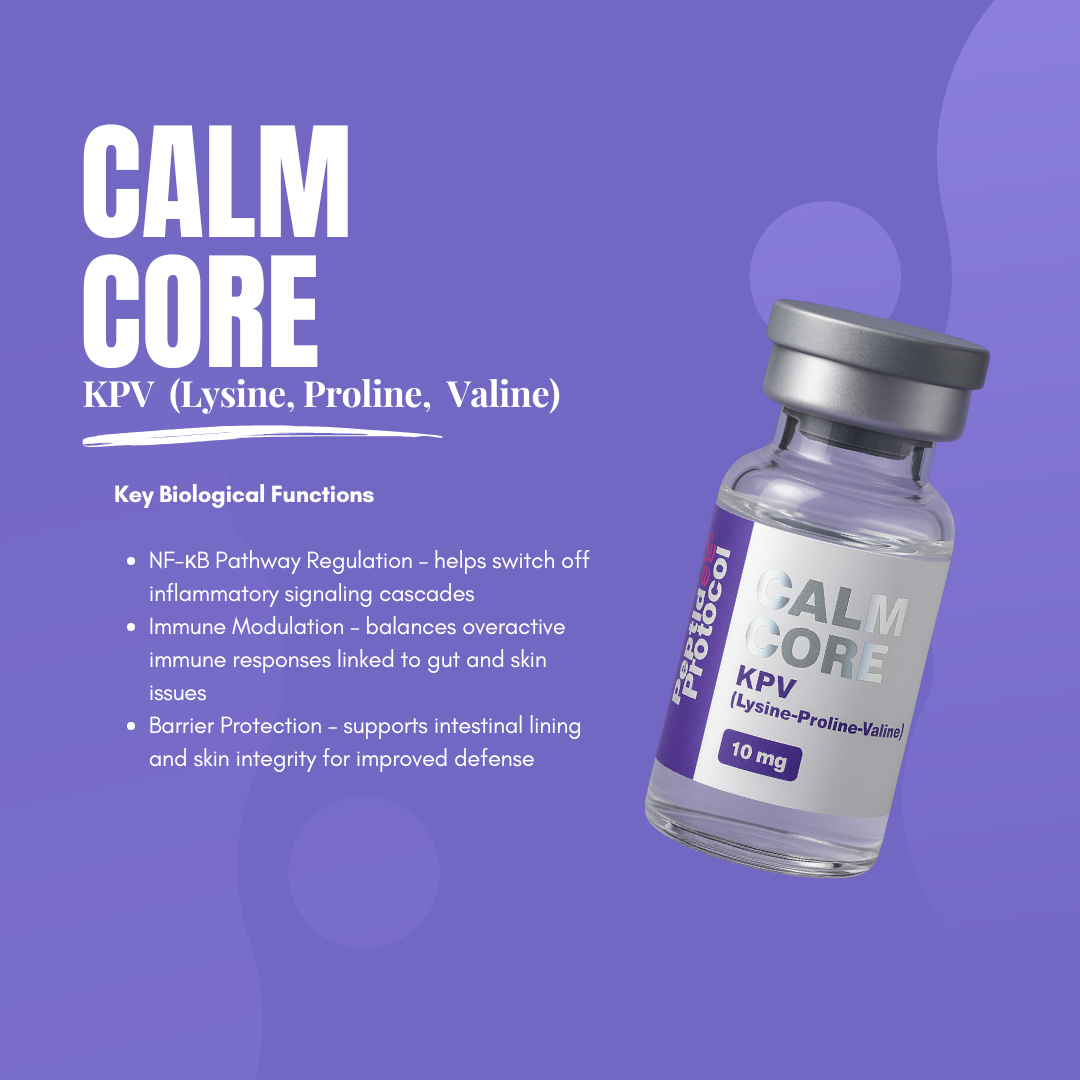
Grounded in Science
How CalmCore Works at the Core
Instead of masking symptoms, CalmCore regulates the very pathways that trigger inflammation. By calming overactive immune responses and strengthening the intestinal barrier, it helps your system return to balance. Research suggests it plays a role in reducing flare-ups, supporting gut stability, and maintaining healthier skin and immunity over time.

More Than Quick Relief
Resilience You Can Feel and See
CalmCore delivers benefits that ripple throughout your body. Imagine less bloating after meals, skin that looks calmer and healthier, and fewer days lost to discomfort.
Beyond relief, it’s about strengthening your body’s baseline — helping you build resilience against daily stressors so you can live with more ease, confidence, and comfort.
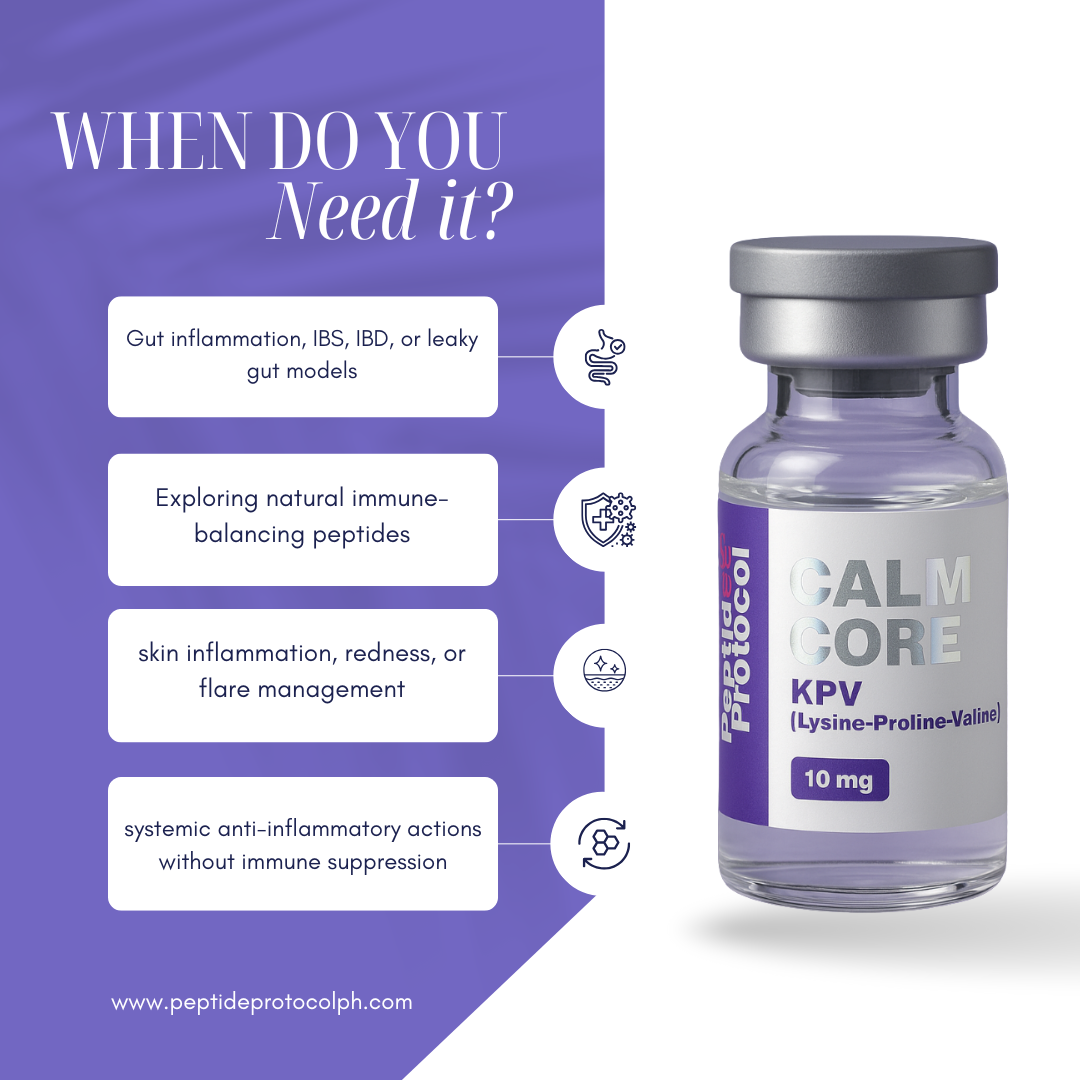
When Your Body Sends Red Flags
Signs CalmCore May Support You
Frequent bloating, skin redness, stubborn flare-ups, or an immune system that always feels on edge — these are your body’s signals that something deeper needs attention.
CalmCore is studied for supporting gut health, easing inflammatory triggers, and promoting inner balance. If you’ve been searching for a way to calm the storm inside, this may be the research peptide for you.
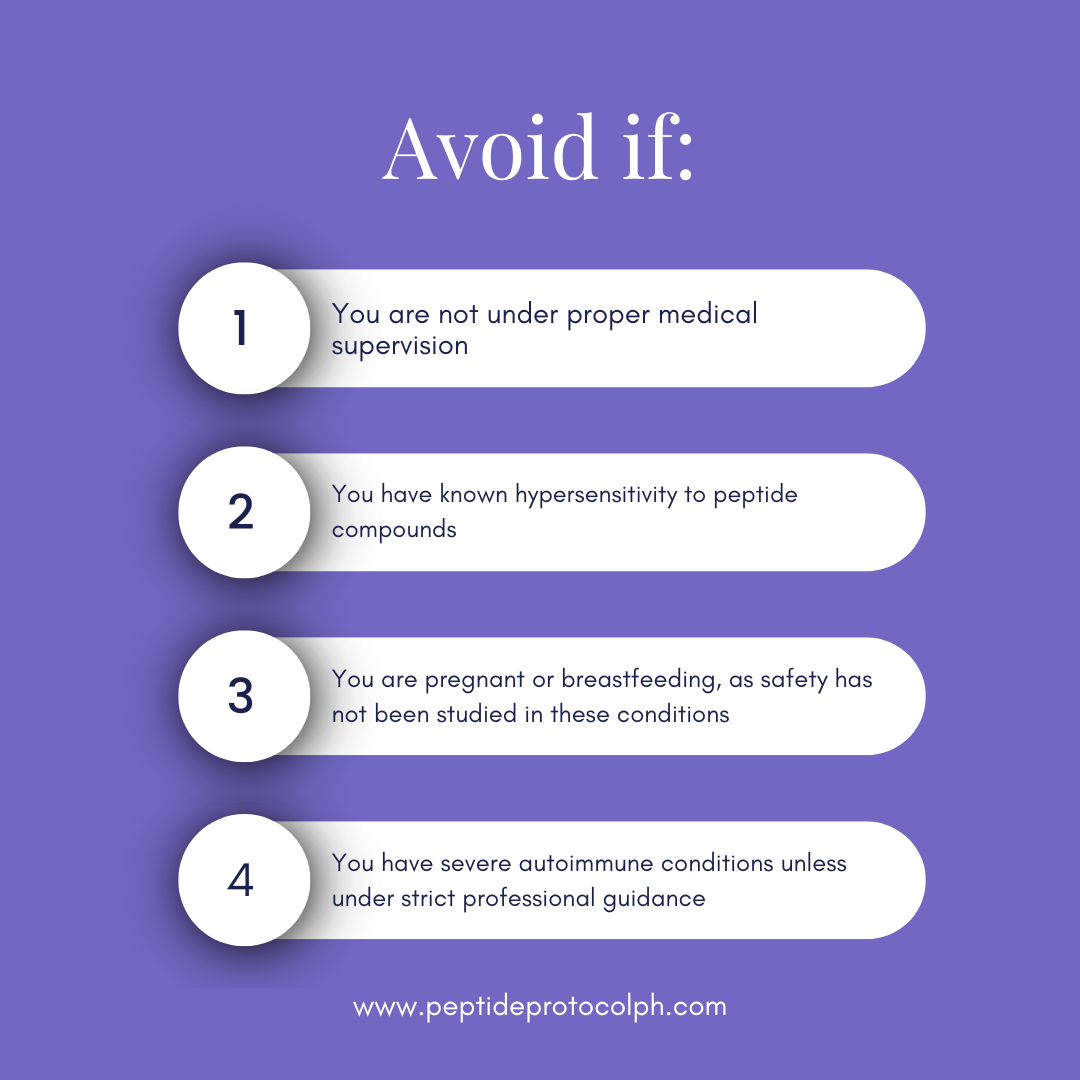
Designed for Responsibility
Who Should Think Twice Before Using
CalmCore is not a one-size-fits-all solution. If you’re pregnant, breastfeeding, allergic to peptides, or managing complex autoimmune conditions, this is not for you without strict guidance.
Remember: this compound is still under research, and safety always comes first. Consult a trusted professional to decide if it’s the right path for you.
For research purposes only. This compound is under clinical study. Consult with a healthcare professional before considering use. Use at your own risk.








